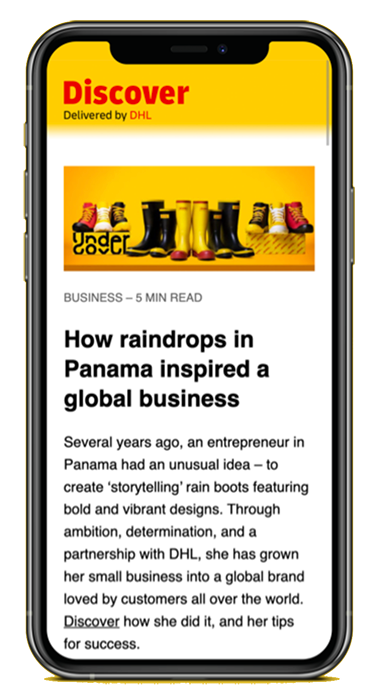Grow your business with the Discover newsletter
Logistics advice & insights straight to your inbox
Subscribe now
The ‘sharing economy’ and ‘collaborative economy’ are becoming more of an everyday reality for many people in Singapore and worldwide. Both terms generally refer to a peer-to-peer model of sharing resources, goods, and services through communal online platforms, and have been gaining popularity over the last few years.
As more users adopt these new models, business owners interested in pivoting or increasing their market share will need to know how to stand out from the crowd.
Both terms refer to a peer-to-peer marketplace environment where users can exchange, buy, sell, or even rent goods and services directly from each other. This includes:
Private-hire vehicle or ride-sharing services like Grab or Gojek
Crowdfunding communities like Kickstarter or GiveAsia
Rental marketplaces like homegrown Singaporean business Lendor
Selling platforms like Carousell, Facebook Marketplace, and Shopee
The key selling point of the sharing and collaborative economy business models is that users can list their own items for sale and deal directly with potential buyers. Social media platforms such as Instagram and TikTok – though not natively part of the sharing or collaborative economies – are also making it easier for independent sellers to build their own e-commerce sites and participate in peer-to-peer marketplaces.
The growth of these models signal larger consumer desires for a sustainable and environmentally-conscious way to maximise and use existing resources. Using a peer-to-peer approach also tends to make prices more affordable for both buyers and sellers as it cuts out costly overheads such as brokers or middlemen.
So how will the sharing economy change the way global logistics and delivery work?
Because of the open nature of peer-to-peer sharing or collaborative economy platforms, flexibility is the name of the game as timelines and even prices are all arranged according to what the buyer and seller agree upon. Compared to traditional businesses that might have fixed restock dates or regular shipping dates, peer-to-peer marketplace participants can arrange the specifics of a purchase or transaction based on their own schedules.
While this may be more convenient in certain circumstances, business owners or sellers can face struggles when consolidating multiple shipments across multiple delivery locations. Flexible delivery solutions like DHL Express Breakbulk or Same Day Export enable business owners in Singapore to cater to individual customers’ order requirements while still enjoying a streamlined and coordinated delivery interface.


On the customer’s side, peer-to-peer transactions within the sharing or collaborative economy are more appealing than traditional models as the buyer can often arrange for specific delivery or pickup options to suit their own needs. This ranges from arranging to get the item from the seller in-person to having the seller send or courier the item over in a timeframe that suits the buyer.
Business owners can take advantage of DHL Express’ optional delivery services and on-demand delivery options to cater to this greater desire for on-demand availability. DHL Express offers specialised delivery and pickup options including Dedicated Pickup for unusual shipments or timings outside normal business hours, Saturday Pickup, Saturday Delivery, and Same-Day Delivery in Singapore. This enables sellers to offer more personalised delivery services that take into consideration the buyer’s preferences as well.
At its core, one of the main drivers behind the sharing or collaborative economy is its focus on customer personalisation and satisfaction. Peer-to-peer platforms enable the buyer more leeway to set the boundaries of the transaction as they wish, resulting in a customer experience that feels more personalised.
Free-to-use selling platforms also mean that buyers have an extremely wide range of sellers to choose from, creating a more competitive environment and saturated market. Maintaining good customer service practices is key to standing out from the crowd, helping you to distinguish your business from the rest. DHL Express’ consumer-friendly shipping applications including MyDHL+ and MyBill add that extra level of customer satisfaction to your transactions, as you can choose and personalise shipping options like Same-Day Delivery to suit your customers needs.
While only time will tell if the sharing and collaborative economy business models will stick around, one thing is for sure – businesses that can provide good customer service and personalisation options are in a better position to attract and retain a loyal customer base. Discover how DHL Express can help you optimise international delivery options for your business in Singapore. Sign up for a DHL Express account today to get started.